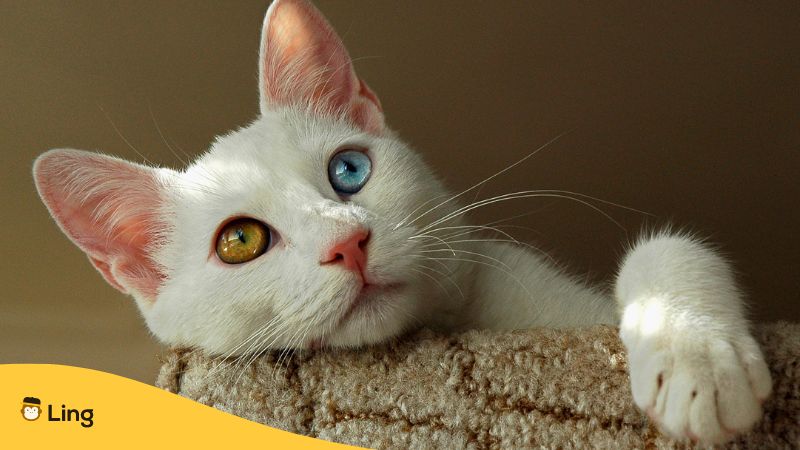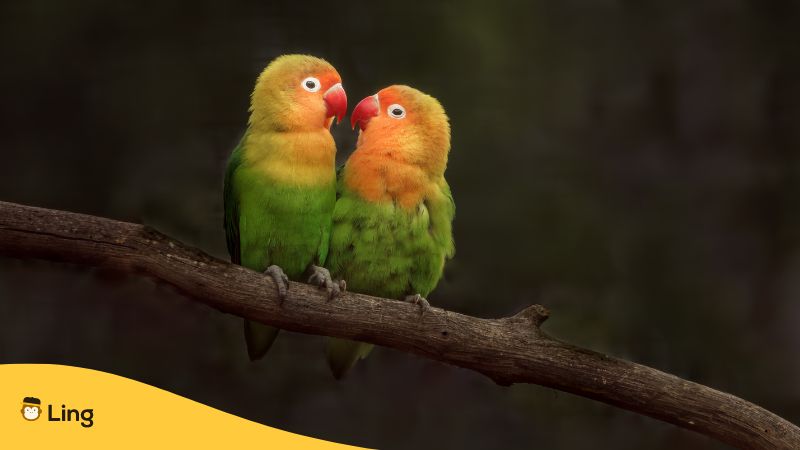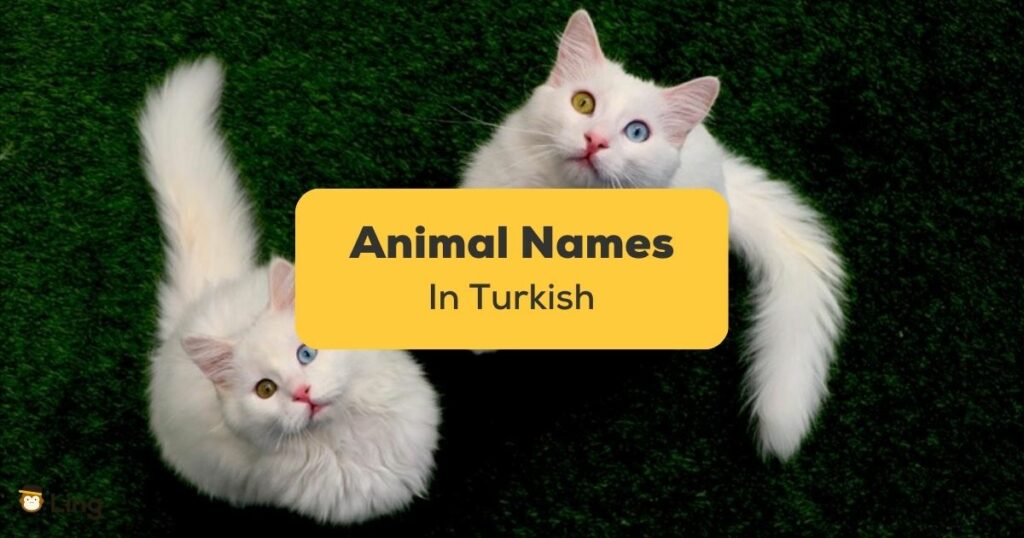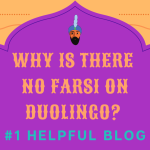Learning Turkish would be incomplete if you don’t know animal names in Turkish, while Turkey is known for its cute stray cats on the streets of İstanbul.
If you’ve traveled to Turkey before, you can attest to the animal love of Turks. They look after stray cats and dogs as if they’re one of their own pets. You can see many plates filled with cat and dog food while walking on the sidewalk in Turkey. People put them for stray animals to eat, so they won’t starve.
To be honest, I sometimes get tired of stopping to pet every cat I see on the street (yep, I’m a cat person). By the way, I must say that most street cats in Turkey look as beautiful as the ones at your home but anyway; less talking, more learning! Let’s get to the vocabulary for animals in Turkish!
Animal names in Turkish:
- Evcil Hayvanlar (Pets)
- Çiftlik Hayvanları (Farm Animals)
- Vahşi Hayvanlar (Wild Animals)
- Deniz Hayvanları (Sea Animals)
- Kuşlar (Birds)
- Sürüngenler (Reptiles)
- Böcekler (Bugs)
- Body Parts Of Animals In Turkish

Evcil Hayvanlar (Pets)
In almost all Turkish homes you can see a pet let it be a cat, dog, or bird… Did you know that some of the Turkish animal breeds are world-famous?
The popular Turkish cat breeds are Turkish Angora cats (Ankara kedisi) and Van cats (Van kedisi) which are naturally born with unique eye colors, usually one is green and the other is blue.
And some of the popular Turkish dog breeds include Kangal dogs, Akbash dogs, and Anatolian Sheperd dogs. The common sense of these Turkish dogs is that they are extremely loyal to their families and protective of each family member.
Here is a vocabulary list for pets in Turkish:
| English | Turkish | Pronunciation |
|---|---|---|
| Cat | Kedi | |
| Dog | Köpek | |
| Parrot | Papağan | |
| Budgerigar | Muhabbet kuşu | |
| Rabbit | Tavşan | |
| Hamster | Hamster | |
| Goldfish | Japon balığı |
Çiftlik Hayvanları (Farm Animals)
Farms are very common in the villages of Turkey. Farm animals are bred to benefit from their meat, milk, eggs, and wool. Most of the cattle farming is performed in the central and eastern parts of the country.
Here is a vocabulary list for farm animals in Turkish:
| English | Turkish | Pronunciation |
|---|---|---|
| Horse | At | |
| Cow | İnek | |
| Pig | Domuz | |
| Rooster | Horoz | |
| Chicken | Tavuk | |
| Goose | Kaz | |
| Goat | Keçi | |
| Sheep | Koyun | |
| Lamb | Kuzu | |
| Duck | Ördek | |
| Camel | Deve |
Vahşi Hayvanlar (Wild Animals)
Most wild animals are kept in zoos as Turkey is not a natural habitat for wild animals like lions, tigers, and elephants. But bears, deer, wolves, and some wild cats can be seen in the forests located in the various parts of the country.
Here is a vocabulary list for wild animals in Turkish:
| English | Turkish | Pronunciation |
|---|---|---|
| Lion | Aslan | |
| Bear | Ayı | |
| Elephant | Fil | |
| Deer | Geyik | |
| Tiger | Kaplan | |
| Wolf | Kurt | |
| Leopard | Leopar | |
| Monkey | Maymun | |
| Fox | Tilki | |
| Zebra | Zebra | |
| Giraffe | Zürafa | |
| Squirrel | Sincap |
Deniz Hayvanları (Sea Animals)
Since Turkey is surrounded by the sea on three sides and has around 5178 miles of shoreline, it has a growing fishing industry. However, the unique fish species that live in the waters of Turkey are rapidly decreasing due to overhunting and pollution.
Here is a vocabulary list for sea animals in Turkish:
| English | Turkish | Pronunciation |
|---|---|---|
| Octopus | Ahtapot | |
| Whale | Balina | |
| Seahorse | Deniz atı | |
| Lobster | Istakoz | |
| Shrimp | Karides | |
| Shark | Köpek balığı | |
| Crab | Yengeç | |
| Dolphin | Yunus | |
| Jellyfish | Deniz anası |

Kuşlar (Birds)
Turkey’s moderate climate is suitable for many different species of birds. Some of the bird species in Turkey are migratory birds so they visit Turkey during the wintertime.
Here is a vocabulary list for birds in Turkish:
| English | Turkish | Pronunciation |
|---|---|---|
| Woodpecker | Ağaçkakan | |
| Owl | Baykuş | |
| Dove | Kumru | |
| Crow | Karga | |
| Eagle | Kartal | |
| Pigeon | Güvercin | |
| Seagull | Martı | |
| Canary | Kanarya | |
| Nightingale | Bülbül | |
| Hawk | Şahin |
Sürüngenler (Reptiles)
The most popular reptile species in Turkey is the Caretta Caretta sea turtle, which lives on the southern shores of the country. The beaches they live on are currently under protection. They are closed at certain hours, May through August, during which period the sea turtles lay their eggs. And they put warning signs for visitors to be aware that it’s Caretta Carettas’ area.
Here is a vocabulary list for reptiles in Turkish:
| English | Turkish | Pronunciation |
|---|---|---|
| Chameleon | Bukalemun | |
| Lizard | Kertenkele | |
| Frog | Kurbağa | |
| Turtle | Kaplumbağa | |
| Sea turtle | Deniz kaplumbağası | |
| Crocodile | Timsah | |
| Snake | Yılan |
Böcekler (Bugs)
Did you know that there’s a bug museum in İstanbul where a range of different bug species has been put on display since 1937? If you’re into bugs, you can visit the museum if you ever travel to Turkey.
Here is a vocabulary list for bugs in Turkish:
| English | Turkish | Pronunciation |
|---|---|---|
| Bee | Arı | |
| Firefly | Ateş böceği | |
| Grasshopper | Çekirge | |
| Silkworm | İpek böceği | |
| Ant | Karınca | |
| Butterfly | Kelebek | |
| Fly | Sinek | |
| Mosquito | Sivri sinek | |
| Spider | Örümcek | |
| Ladybug | Uğur böceği |
Body Parts Of Animals In Turkish
And, lastly, here is the vocabulary list that includes words related to the body parts of animals in Turkish:
| English | Turkish | Pronunciation |
|---|---|---|
| Horn | Boynuz | |
| Trunk | Filin hortumu | |
| Beak | Gaga | |
| Wing | Kanat | |
| Feather | Tüy | |
| Tail | Kuyruk | |
| Fur | Kürk | |
| Paw | Pati | |
| Claw | Pençe | |
| Fin | Yüzgeç |
So, you’ve learned Turkish animal names in today’s blog post. If you’re interested in learning more Turkish, check out Ling today! Read below to learn more about our app!
Learn Turkish With Ling!
Want to learn more Turkish? Then, waste no more time and try Ling to start your Turkish lessons at home today!

Ling is a language-learning app designed to help all learners from the beginning of their language-learning journeys. Ling consists of various engaging activities, from writing and listening exercises to an AI chatbot to practice your speaking skills, and with much more, Ling offers you everything you’re looking for in a language learning app.
Also, don’t forget to check out our Turkish blog for weekly articles about the Turkish language and culture!
Trust me; you won’t regret it if you try Ling for FREE by downloading it from the App Store or Play Store.
Until next time! Görüşürüz!































































